Greens of Chester raises many questions
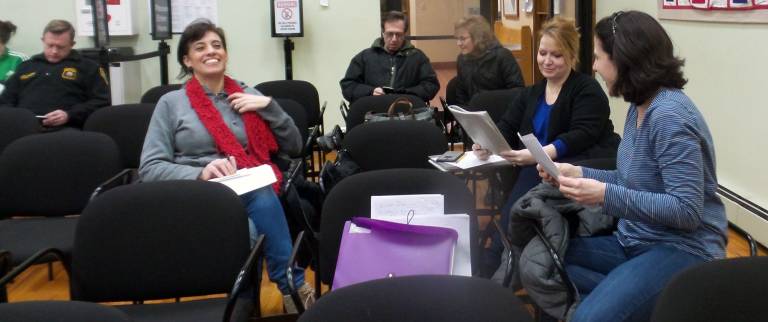
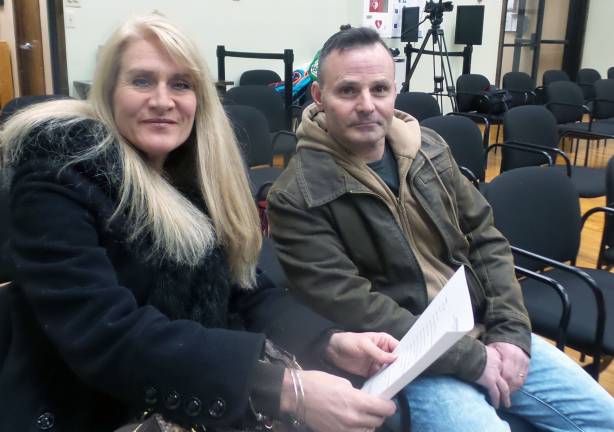
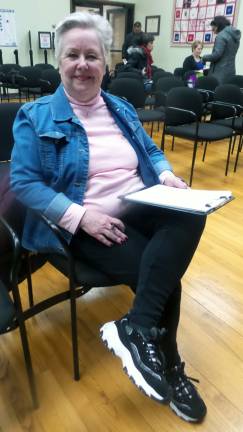
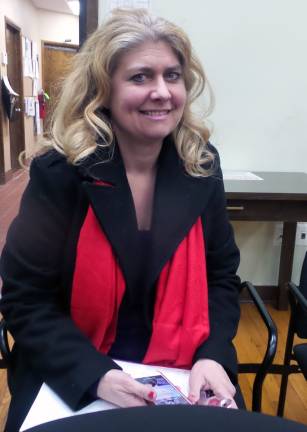
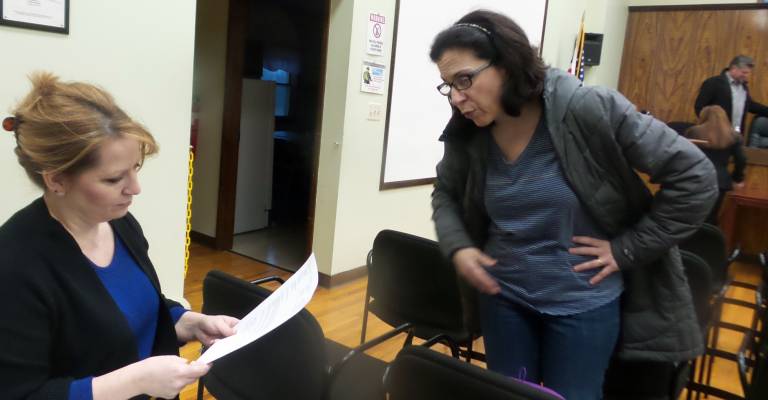

By Frances Ruth Harris
CHESTER — Chester residents asked the town board for updates a long-running project, the Greens of Chester, which is coming close to fruition after a quarter-century in the works.
Supervisor Alex Jamieson said the Greens of Chester first approached the town planning board on May 26, 1994, with its original proposal of 950 condos. The public hearing was held on Feb. 21, 1996, he said. He said litigation in 2010 resolved some conflicts between the town and developer, with “the town happy we didn’t have to build a sewer plant in the town."
The Greens was reduced to 260 single-family homes and another 200 detached homes. The builders will be asking the village for water, and the school district will supply buses for transportation to Kiryas Joel.
“Development is going to be open," said Jaimeson. "However, they are from Brooklyn."
There are wells on the property, he said.
“The town will take over their water district once it is in place,” Jamieson said.
Questions and answersA number of residents had questions for the town board about the Greens:
Speed limit — Lisa Toth asked why the town requested a speed limit of 45 miles per hour on her road of Summerville Way — which connects West Avenue and Conklingtown and would therefore get more traffic — when sight distances are so limited. She asked for a 35 mph limit on the road.
The main road through the Greens of Chester will run from West Avenue to Conklingtown Road and will be maintained by the town. The other roads on the property will be private.
Jamieson said he talked to the highway department about installing a traffic light at West Avenue and Route 94. Councilman Robert Valentine said town officials should meet with state officials at the site to determine the best speed limit for the road.
Code enforcement — Kristi Greco asked, Who is going to enforce town laws at the Greens? Jamieson said the town engineer will be on-site with his staff 'round the clock when the water main lines and sewer lines are installed. The building inspector is in charge of enforcing town codes, he said.
Jamieson said the town must abide by the terms of the lawsuit.
Environmental review — David Stevenson asked if the Greens ever got a more recent environmental review by the state to reflect changes in the town since the 1990s. Jamieson said some of the plan will need to be updated when it comes up for renewal. To get a variance to squeeze in more residences, Jamieson and Valentine said, the developer would have to reapply to the zoning board, lot by lot.
Tracking bedrooms — Tracy Schuh of the Preservation Collective asked how the town will keep track of bedrooms since the Greens will be building in phases. Valentine said someone will have to do it. Schuh said the town was routinely granting conditional approvals to projects, and asked the board to consider changes over time so that projects wouldn't need to be extended ten or more years. Were the extensions warranted or just routinely granted? she asked.
Housing style — Reggie Junco wanted to know more about the style of housing in the plans. Jamieson said they can build single-family houses and duplexes, but the style is up to them. He suggested stopping in at the builders' office on Route 94 to see pictures and a map. Valentine said the board has no control over the style of construction. Jamieson and Valentine said the building department is in charge of room counts.
Wells — Junco also asked about the town's responsibility in supplying water — if the town were taking over the water district, he said, the board should know what was on the plan. Valentine said the town doesn't control the wells, that the county health department approved the water distribution system, and that he wasn’t an engineer.
Plan in hand, he stood next to Junco and together they counted five wells on the site. Valentine said the residents of the water district, not the town, are responsible for repairs, well drilling, and water tower construction.
Open-ended construction — Brian Boone asked what would happen to the 51 acres that weren’t being built on now — could the developer return and build more houses later? In Monroe, he said, developers came back and sued to use additional land. “If they are going to keep going and going and going like they seem to do...," said Boone.
The engineer said this wasn't possible because it’s a cluster development. Valentine said the land would be owned by the homeowners association, and any changed would have to be approved by the planning board. Cindy Smith said they could tell the developer right now they would not move forward with more building.
Septic system — Mike Alesci asked how many people could live in a two-bedroom house, noting that sceptic laws were based on the number of bedrooms in each house. The board said they didn’t think there was a number, according to the law. What would happen if ten or 12 people moved into a three-bedroom residence? Alesci asked.
Home prices — Rosemary McCourt asked about the prices of the homes. Jamieson said they'd be in the $350,000 to $400,000 range.
McCourt said she came from Teaneck, N.J., an Orthodox community where private homes are used as synagogues, “or at least it starts off that way.” Valentine said, “They’d have to pay taxes. Nobody is going to get free taxes in the town of Chester, unless it’s done properly the right way the way it’s supposed to be done.” Jamieson believes the builders will submit their first building permits in the fall. McCourt also said a light is needed at Summerville and also at West Avenue.
Parking — Suzanne Bellanich asked about parking space. Valentine said two spaces were allowed for each house, with the garage counting as a space, and overflow parking made available.
Synagogue — Alesci also wanted to know if there were plans for a synagogue. Jamieson and Valentine said, “Not yet.” Alesci said that if they wanted a synagogue, the board wouldn't be able to block it. “There’s no way you could say that, no matter what kind of lawyers you had," he said. Jamieson said they'd have to come before the planning board, but Alesci said, “But they will get it. They will get it. In the meantime, they will use the basements.” A disagreement ensued as Jamieson tried to reassure Alesci that they would not be able to transform the basements into additional bedrooms. “Never underestimate what they can do," Alesci said. "They are going to be much more powerful than the town boards to get what they want.” Valentine said they couldn’t address the future. Alesci said the town needed to make provisions.
Violations — Gordon Shehab predicted the Greens will become like Kiryas Joel. Jamieson gave assurances that the town has two building inspectors and will hire as many as needed to keep up with the work. But Shehab said the inspectors will not return after the house is built and occupied. Valentine said, “Somebody would have to report" violations like putting up walls or occupying basements. Shehab said there would be no reports.
Jamieson said they couldn't arbitrarily start inspecting people’s houses. Shehab said he knew that, after what happened in Monroe — they voted as a block, they got on the boards, and did everything the way they wanted. “Nothing against you, but you may not be here," Shehab said.
Jamieson said he and Valentine talked to the old owner before he sold it but could not convince him to turn away from the $13 million offered for the property. They both noted that they were not on the board when the project was approved.
“The whole town of Chester has changed forever," Alesci said, aggrieved.
"Within the next ten years," he said, motioning toward the board, "nobody is going to be sitting in here. The school district is going to change. Everything is going to change. There is nothing you can do about it. It’s over. That’s all I have to say. I’m through.”
Editor's note: This article has been updated from the original to reflect the correct price range of the residential units.